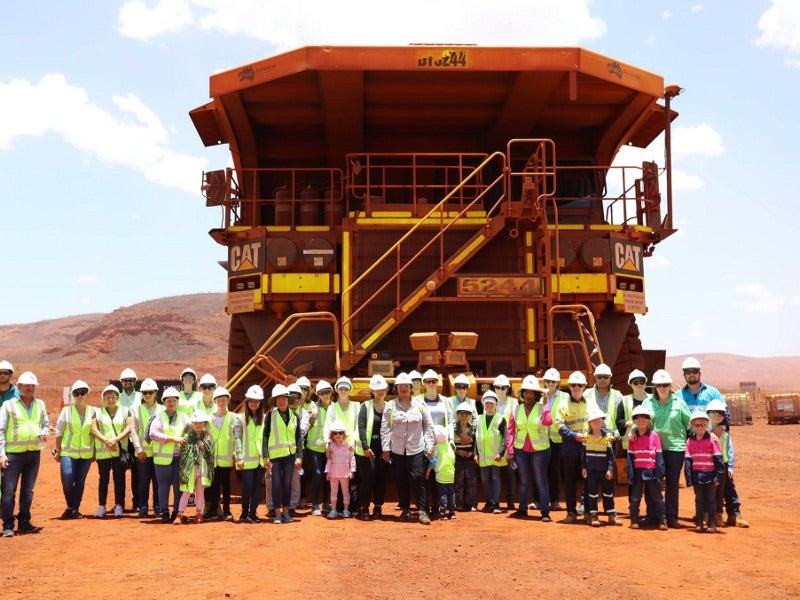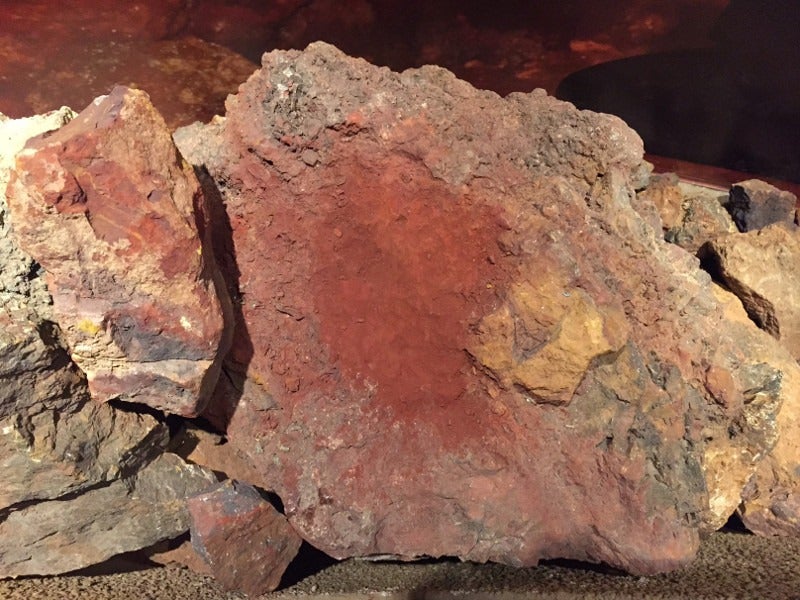The Iron Bridge magnetite project in Pilbara region of Western Australia is one of the biggest magnetite resources in Australia.
An unincorporated joint venture (UJV) between FMG Magnetite (69%) and Formosa Steel IB (31%) is developing the project in two phases. Fortescue is responsible for the management and operation of the project.
FMG Magnetite is a subsidiary of FMG Iron Bridge, which is owned by Fortescue Metals Group (88%) and Baosteel Resources International Company (12%).
The first phase of the project was developed with a capital cost of $500m, while the second phase is expected to cost approximately $2.6bn. Final investment decision on the second phase of development was approved in April 2019.
The magnetite project is expected to deliver first ore in the first half of 2022 and is expected to have a life of more than 20 years. It is expected to create approximately 3,000 construction jobs and more than 900 permanent operational jobs.
Iron bridge magnetite project background
The Iron Bridge project development was initiated in 2010 and the first phase development works were completed between 2015 and 2018.
The works included construction of a large-scale pilot plant replicating the proposed magnetite production process and the installation of key equipment required for the operations.
Iron Bridge project location, geology, and mineralization
The Iron Bridge magnetite project is located in the East Pilbara Terrane region of the Pilbara Craton in Western Australia, approximately 110km from the town of Port Hedland. It is made up of two mining leases M45/1244, which contains the Glacier Valley deposit, and M45/1226, which hosts the North Star and West Star deposits.
The project is located within the northern part of the Pilbara Craton. Magnetite resources at the project are hosted in banded iron formations.
The project hosts volcanic and volcanoclastic rocks, which were intruded by Archaean felsic granitoids. It underwent regional deformation, which can be identified by strike slip and reverse faulting.
Iron Bridge magnetite ore reserves
The Iron Bridge project is expected to contain 716Mt of ore reserves containing 67% of Fe, as of April 2019.
The JORC 2012-compliant mineral resources are estimated to be 5.45 billion tonnes, which include the North Star, Eastern Limb, Glacier Valley, and West Star deposits.
Mining and ore processing
Low-cost open-pit truck and shovel mining method is proposed to extract iron ore from the Iron Bridge project. Automated haulage and drilling system will be implemented in order to maximize the project value.
The project also comprises a large-scale pilot plant (phase one), which processed one million tonnes of ore through full-scale HPGR and air classifier.
Ore will undergo two stages of crushing – primary and secondary and then stockpiled. It will undergo tertiary crushing using high-pressure grinding rolls, followed by dry screening and dry magnetic separation. The resultant product will undergo rougher separation and secondary grinding, followed by cleaner magnetic separation.
The resultant slurry will be delivered to the port through a 135km-long slurry pipeline, for further drying. The final product will be shipped to China and partner nations.
Iron Bridge project infrastructure
Road access to the project is through the Great Northern Highway sealed road, while the airport is located 20km west of the mine site facilities. Railway lines extend from Fortescue’s Herb Elliot Port facility in Port Hedland till approximately 25km from the project site.
The second phase includes the addition of a ore processing facility, a 195km water supply line from Canning Basin, a 135km concentrate slurry pipeline, and other port handling facilities.
Support infrastructure includes access roads, worker accommodation camps, communication towers, and water supply system.
Power required for the operations is proposed to be sourced from a mix of existing and new generation sources in Pilbara.
Financing
FMB IB will provide $2.1bn of the proposed $2.6bn investment for phase two, while the rest will be met by the other UJV partner.
Contractors involved
NRW was awarded the civil and mining works contract for the Iron Bridge magnetite project.





